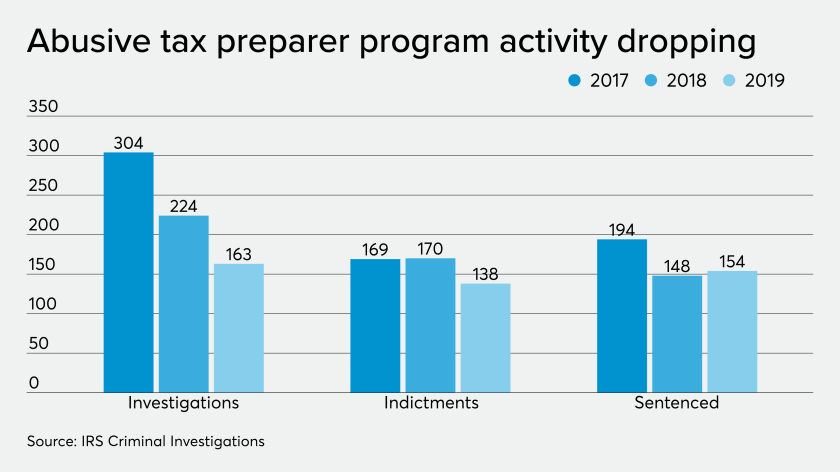The IRS announced in IR-2020-18 that the J5 conducted a globally coordinated day of action to put a
stop to the suspected facilitation of offshore tax evasion has been undertaken
this week across the United Kingdom (UK), United States (US), Canada, Australia
and the Netherlands.
The action occurred as part of a series of investigations in multiple countries into an international financial institution located in Central America, whose products and services are believed to be facilitating money laundering and tax evasion for customers across the globe.
Significant information was obtained as a result and investigations are ongoing. It is expected that further criminal, civil and regulatory action will arise from these actions in each country.
This is the first major operational activity for the Joint Chiefs of Global Tax Enforcement, known as the J5, formed in mid-2018 to lead the fight against international tax crime and money laundering. This group brings together leaders of tax enforcement authorities from Australia, Canada, the UK, US and the Netherlands.
The action occurred as part of a series of investigations in multiple countries into an international financial institution located in Central America, whose products and services are believed to be facilitating money laundering and tax evasion for customers across the globe.
It is believed that through this institution a
number of clients may be using a sophisticated system to conceal and transfer
wealth anonymously to evade their tax obligations and launder the proceeds of
crime.
The coordinated day of action involved evidence,
intelligence and information collection activities such as search warrants,
interviews and subpoenas.
Significant information was obtained as a result and investigations are ongoing. It is expected that further criminal, civil and regulatory action will arise from these actions in each country.
This is the first major operational activity for the Joint Chiefs of Global Tax Enforcement, known as the J5, formed in mid-2018 to lead the fight against international tax crime and money laundering. This group brings together leaders of tax enforcement authorities from Australia, Canada, the UK, US and the Netherlands.
“This is the first coordinated set of enforcement
actions undertaken on a global scale by the J5 – the first of many,”
said Don
Fort, US Chief, Internal Revenue Service Criminal Investigation.
“Working with the J5 countries who all have the
same goal, we are able to broaden our reach, speed up our investigations and
have an exponentially larger impact on global tax administration. Tax cheats in
the US and abroad should be on notice that their days of non-compliance are
over,” Fort said.
“This multi-agency, multi-country activity should
degrade the confidence of anyone who was considering an offshore location as a
way to evade tax or launder the proceeds of crime.”
The ATO has commenced investigations into Australian based clients of this institution who are suspected to have undeclared income. The Australian Criminal Intelligence Commission (ACIC) is playing a supportive intelligence role, and investigations into more clients may follow.
The ATO has commenced investigations into Australian based clients of this institution who are suspected to have undeclared income. The Australian Criminal Intelligence Commission (ACIC) is playing a supportive intelligence role, and investigations into more clients may follow.
“Never before have criminals been at such risk of
being detected as they are now.
Our increased collaboration, data analytics and
intelligence sharing mean there is no place worldwide you can hide your money
to avoid contributing your obligations,” Day said.
Hans van der Vlist, Chief and General Director
Fiscal Information and Investigation Service (FIOD), the Netherlands, said,
“This is the first outcome of an operational collaboration between five
countries on tackling professional enablers that facilitate offshore tax crime.
The international investigation started on
information obtained by the Netherlands. By sharing this information and
working together an international impact is created. Together as the J5 we will
try to close the net on tax criminals.”
Canada Revenue Agency (CRA) Chief Eric Ferron said, “I am very pleased with the role the CRA is playing in what will be the first of many major operational activities for the J5. This coordinated operation shows that the collaboration between J5 countries is working. Tax evaders beware; today’s action shows that through our combined efforts we are making it increasingly difficult for taxpayers to hide their money and avoid paying their fair share.”
Simon York, Chief and Director of Her Majesty’s Revenue and Customs (HMRC)’s Fraud Investigation Service said, “Tax evasion is a global problem that needs a global response and that is what the J5 provides. This kind of international action shows that we can, and we will take on the most collaboration underlines our commitment to tackling these harmful, sophisticated and complex crimes and that we are committed to levelling the playing field for honest businesses and taxpayers.
“International tax evasion robs our public services of vital funds, undermines economies and, left unchecked, can enrich the dishonest at the expense of the honest majority.
Working together, HMRC and our J5 partners are closing the net on tax criminals, wherever they are, to ensure nobody is beyond our reach. The message to them is clear – the J5 are closing in.”
Canada Revenue Agency (CRA) Chief Eric Ferron said, “I am very pleased with the role the CRA is playing in what will be the first of many major operational activities for the J5. This coordinated operation shows that the collaboration between J5 countries is working. Tax evaders beware; today’s action shows that through our combined efforts we are making it increasingly difficult for taxpayers to hide their money and avoid paying their fair share.”
Simon York, Chief and Director of Her Majesty’s Revenue and Customs (HMRC)’s Fraud Investigation Service said, “Tax evasion is a global problem that needs a global response and that is what the J5 provides. This kind of international action shows that we can, and we will take on the most collaboration underlines our commitment to tackling these harmful, sophisticated and complex crimes and that we are committed to levelling the playing field for honest businesses and taxpayers.
“International tax evasion robs our public services of vital funds, undermines economies and, left unchecked, can enrich the dishonest at the expense of the honest majority.
Working together, HMRC and our J5 partners are closing the net on tax criminals, wherever they are, to ensure nobody is beyond our reach. The message to them is clear – the J5 are closing in.”
Have Unreported Income?
Like Your Freedom?
Want to Know if the OVDP Program is Right for You?
Contact the Tax Lawyers at
Marini & Associates, P.A.
for a FREE Tax Consultation contact us at:
Toll Free at 888-8TaxAid (888) 882-9243




















